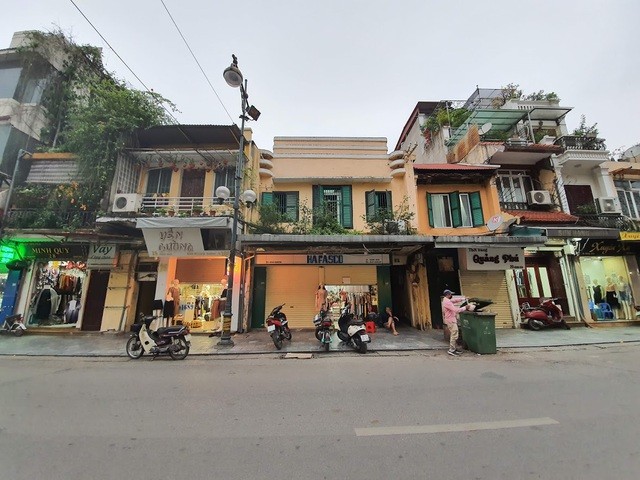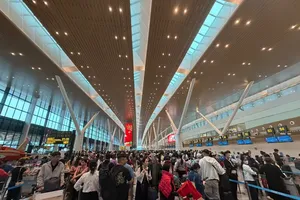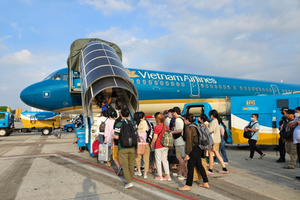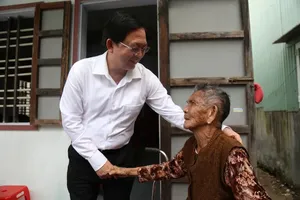
Le Manh Hai has three spaces for rent as restaurants and cafes in Xa Dan, Hanoi. The landlord used to get VND120 million (more than US$5,000) per month from them but now can’t get anywhere near that amount.
Because of the COVID-19 pandemic, the businesses of Hai’s tenants were hit so hard that Hai cut rent in half, but two out of three could not afford to stay.
He said: "I am offering them a discount of 30-40 percent per year, but they are not interested because they do not know when their business will return to normal."
Known as "diamond business spaces" in Hanoi, before the pandemic, rents in the streets of Hang Ngang, Hang Dao and Hang Gai could be up to VND200 million per month and they were always full.
Now, other landlords of commercial spaces are facing similar difficulties. On major roads in the central districts of the two biggest cities of Vietnam, people can see rental signs going up after the cafes, milk tea shops, restaurants and fashion stores close their doors due to a lack of customers.
Many landlords cut rents by 30 to 40 percent but it is still not easy to find tenants.
In HCMC, Tran Hung, who owns three commercial spaces in Districts 1 and 3, said he used to earn more than VND180 million (US$7600) a month, but cut rents by 50 percent recently.
“Two tenants have stopped renting my places and I expect the remaining tenant to also stop soon.
“I am suggesting that if they sign a new contract they will get a 30-40 percent discount for a year, but they are hesitant because they do not know when the business situation will return to normal.”
Small businesses in the food and beverages and fashion sectors could only sustain losses for a maximum of six months, and so if they do not see good prospects soon, they should close down, experts said.
Le Hoang Anh, owner of a fashion shop on Nguyen Thi Minh Khai Street in District 3, said: “The social distancing campaign has ended. But people have now reduced spending on unnecessary things including new clothes. I am worried.
“If I make losses for three to five months, I will definitely go bankrupt. So I am thinking of returning the premises to the landlord or subletting it."
The situation is similar for apartments for rent in the downtown area, with many finding no takers though rentals have dropped by 20 -30 percent, experts said.
Before the pandemic began, the average rent for a 25-40sq.m furnished apartment with all amenities was $400-600 per month, but now has fallen to not more than $450.
The low-priced segment for students and workers has also been severely affected by the epidemic, falling by 30 -50 percent in some suburban districts to VND1.5-3 million a month.
Tran Thi Hoa, an investor, said she had bought 70 rooms in Binh Thanh and Binh Tan District last year and had hoped to lease each for VND 3-4.5 million per month. But due to the outbreak, only 10 percent of them are occupied and she only gets rents of VND3-3.5 million, she said.
The latest survey by realty research firm CBRE Vietnam shows that 79 percent of tenants worried that their revenue in the last half of the year would be worse, while 43 percent of tenants said revenue would decrease by 10-30 percent in 2020. In addition, 61 percent of tenants said they had not received assistance from landlords and 27 percent expect landlords to offer more support.
The Q1 report by the biggest local realty website batdongsan.com.vn shows that the price of real estate for rent in major cities has decreased significantly. As much as 63 percent of spaces on major streets of HCMC have seen rents cut. The ratio is 56 percent and 50 percent in Hanoi and Da Nang, respectively.
























